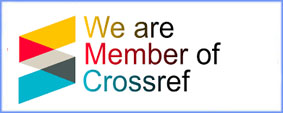Penerapan Pendekatan Deep Learning Pada Pembelajaran Di Sekolah Dasar Kota Bekasi
Abstract
Abstrak: Deep learning dalam konteks pendidikan bukan hanya merujuk pada teknologi kecerdasan buatan, tetapi juga pada pendekatan pembelajaran mendalam yang mendorong pemahaman konsep secara holistik, reflektif, dan bermakna. Artikel ini bertujuan untuk mengkaji bagaimana pendekatan pembelajaran deep learning diterapkan di Sekolah Dasar (SD). Melalui studi literatur dan survei pada guru-guru SD, ditemukan bahwa meskipun potensial meningkatkan pemahaman konsep dan berpikir kritis siswa, implementasi deep learning masih menghadapi tantangan dalam hal kurikulum, pelatihan guru, dan sarana pendukung.
Kata kunci: Deep learning, pembelajaran bermakna, Sekolah Dasar, konstruktivisme, pembelajaran reflektif
Abstract: Deep learning in the context of education refers not only to artificial intelligence technology, but also to an in-depth learning approach that encourages holistic, reflective, and meaningful understanding of concepts. This article aims to examine how the deep learning approach is applied in Elementary Schools (SD). Through literature studies and surveys of elementary school teachers, it was found that despite the potential to improve students' conceptual understanding and critical thinking, the implementation of deep learning still faces challenges in terms of curriculum, teacher training, and supporting facilities.
Keywords: Deep learning, meaningful learning, Elementary School, constructivism, reflective learning
References
Bonwell, C. C., & Eison, J. A. (1991). Active Learning: Creating Excitement in the Classroom. ASHE-ERIC Higher Education Report No.1.
Flavell, J. H. (1979). Metacognition and cognitive monitoring: A new area of cognitive–developmental inquiry. American Psychologist, 34(10), 906–911.
Fullan, M., Quinn, J., & McEachen, J. (2018). Deep Learning: Engage the World Change the World. Corwin Press.
Kemendikbudristek. (2022). Kurikulum Merdeka dan Profil Pelajar Pancasila. Jakarta: Kemendikbudristek.
Marton, F., & Säljö, R. (1976). On qualitative differences in learning: I—Outcome and process. British Journal of Educational Psychology, 46(1), 4–11.
, N., Mulyaningsih, T., & Cahyani, J. (2024). PENGARUH TINGKAT PENDIDIKAN ORANG TUA TERHADAP MOTIVASI BELAJAR SISWA KELAS IV MI NURUL ANWAR KOTA BEKASI. El Banar : Jurnal Pendidikan Dan Pengajaran, 7(02), 92-102. https://doi.org/10.54125/elbanar.v7i02.283
OECD. (2020). Teaching as a Knowledge Profession: Studying Pedagogical Knowledge Across Education Systems. OECD Publishing.
Piaget, J. (1972). The Psychology of the Child. Basic Books.
Sari, J. P., Sukandar, W., Yumna, Y., Nurhasanah, N., Dahliana, D. ., Yolanda, S. A., & Cahyani, R. I. (2024). Mind Mapping Solutions to Improve Learning Outcomes in Islamic Education and Natural Sciences. UKAZ: International Journal of Islamic Studies, 1(1), 9–17. https://doi.org/10.69637/ukaz.v1i1.59
Vygotsky, L. S. (1978). Mind in Society: The Development of Higher Psychological Processes. Harvard University Press.
Copyright (c) 2025 El Banar : Jurnal Pendidikan dan Pengajaran

This work is licensed under a Creative Commons Attribution-NonCommercial-NoDerivatives 4.0 International License.











